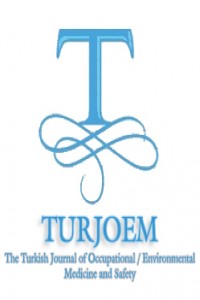Öz
Bladder cancer is one of the most
frequent malignancies around the world. Bladder cancer has high rate of
recurrence. Silibinin is a natural polyphenolic flavonoid isolated from seed
extracts of the herb milk thistle (Silybum marianum) with antioxidant and anticancer properties. Silibinin was reported to
depress cell growth and induce apoptosis in cancer cells. In this study,
we aimed to investigate the inhibition of proliferation and induction of
apoptosis by silibinin with the TUNEL method in human bladder carcinoma TCC-SUB
and RT-4 cell lines and cells of the synthesis phase with the BrdU labeling
index.
The TCC-SUB and RT-4 cell lines,
are bladder cancer cell, were cultured in monolayer model. Cells were treated
with silibinin at 24, 48, and 72 hours of incubation. The BrdU labeling index
was used to determine the proliferation of cells. TUNEL assay were used to
determine the apoptotic cells in the monolayer culture.
An IC50 dose of silibinin in
TCC-SUB and RT-4 cells was 100 µM/ml at 24, 48, and 72 hours of incubation. The
control group had a normal pattern of S-phase fraction and many of the TCC-SUB
and RT-4 cells nuclei were observed to be positive for BrdU. TUNEL positive
cells were detected after treatment with silibinin in the monolayer cultures.
The dead cell count was higher in the TCC-SUB and RT-4 cell lines with
silibinin applied than in the control.
We conclude that
silibinin inhibit bladder cancer growth by apoptosis. Further in vivo studies
are needed to confirm our findings in humans.
Kaynakça
- Department of Histology and Embryology, Faculty of Medicine, Süleyman Demirel University, Isparta, Turkey
- Department of Urology, Faculty of Medicine, Süleyman Demirel University, Isparta, Turkey
Öz
Kaynakça
- Department of Histology and Embryology, Faculty of Medicine, Süleyman Demirel University, Isparta, Turkey
- Department of Urology, Faculty of Medicine, Süleyman Demirel University, Isparta, Turkey
Ayrıntılar
| Bölüm | Articles |
|---|---|
| Yazarlar | |
| Yayımlanma Tarihi | 16 Şubat 2017 |
| Yayımlandığı Sayı | Yıl 2017 Cilt: Volume 2 Sayı: İssue 1 (1) - 2.İnternational Congress Of Forensic Toxicology |

